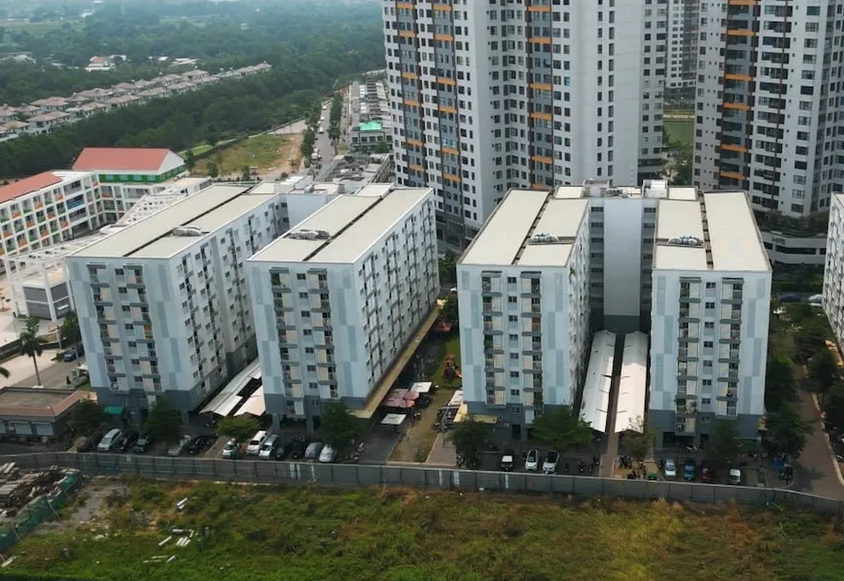Tightening Tax Management for Individuals Renting Out Properties
Context of the directive
According to statistics, in 2024, state budget revenue reached a record of more than VND 1.7 quadrillion. Revenue from the household business sector alone hit VND 25,953 billion, up 20% compared to 2023. These results highlight the effectiveness of implementing electronic invoices and more synchronized tax management across localities. However, the Tax Department also pointed out ongoing issues: many households and individuals renting out properties either failed to declare tax or under-reported their rental income, leading to significant losses for the state budget and creating inequality among taxpayers.

Strengthening coordination at the grassroots level
Official Letter 2688/CT-KTr emphasizes the role of local authorities such as communes, wards, and residential groups in providing data on rental activities within their areas. This information serves as a vital basis for tax authorities to review, cross-check, and compare with taxpayers’ declarations. At the same time, the tax sector will develop digital maps of rental households and share this data with People’s Committees and relevant departments to improve supervision and ensure transparency.
Inter-agency cooperation to prevent revenue loss
A notable requirement is cross-sectoral coordination. The tax authority will work with the Police, the Department of Construction, the Department of Information and Communications, Fire Prevention units, and other relevant agencies to synchronize databases. By doing so, tax management will rely on objective and accurate data, minimizing cases of tax evasion or false declarations. This also reflects an effort to apply digital technology, big data, and mapping tools to enhance tax administration.
Promoting tax awareness and support for taxpayers
Besides monitoring, the directive requires tax authorities to strengthen communication and education on tax obligations for households and individuals renting out properties. Communication must be diverse, easy to understand, and tailored to different groups to encourage voluntary compliance. Local tax offices are also tasked with providing timely support and guidance to reduce violations caused by a lack of understanding.
Significance and impact
The issuance of Official Letter 2688/CT-KTr demonstrates the determination of the tax authority to close loopholes in budget revenue collection from the rental property sector—an increasingly active yet hard-to-monitor market. Through multi-level, multi-agency cooperation and the use of technology in management, the directive is expected to boost state revenue, ensure fairness among taxpayers, and bring greater stability and transparency to the real estate rental market.
Ý kiến bạn đọc
Những tin mới hơn
Những tin cũ hơn
GIỚI THIỆU VỀ CTY CP LUẬT NGUYỄN - LUẬT NGUYỄN GROUP
Từ những bước đi đầu tiên, Luật Nguyễn đã không ngừng nỗ lực để trở thành một trong những đơn vị tư vấn pháp lý hàng đầu tại Việt Nam, mang đến các giải pháp toàn diện, chuyên nghiệp và đáng tin cậy cho hàng ngàn khách hàng cá nhân và doanh nghiệp. LUẬT NGUYỄN - HÀNH TRÌNH XÂY DỰNG UY TÍN TỪ...
-
 Bỏ thuế khoán: Đề xuất mới về kê khai thuế hộ kinh doanh
Bỏ thuế khoán: Đề xuất mới về kê khai thuế hộ kinh doanh
-
 Bộ Chính trị ra Chỉ thị tăng cường lãnh đạo giám định tư pháp, định giá tài sản
Bộ Chính trị ra Chỉ thị tăng cường lãnh đạo giám định tư pháp, định giá tài sản
-
 Lý do không áp dụng biểu thuế cho kỳ tính thuế năm 2025
Lý do không áp dụng biểu thuế cho kỳ tính thuế năm 2025
-
 Biểu thuế TNCN 5 bậc, thuế suất 35%: Đã tối ưu cho người lao động?
Biểu thuế TNCN 5 bậc, thuế suất 35%: Đã tối ưu cho người lao động?
-
 Ngành Thuế Ra Mắt Công Cụ Tự Kê Khai Trực Tuyến
Ngành Thuế Ra Mắt Công Cụ Tự Kê Khai Trực Tuyến
- Đang truy cập767
- Hôm nay199,670
- Tháng hiện tại794,308
- Tổng lượt truy cập4,780,306
-
 Khởi tố Đoàn Văn Sáng vì tội giết người ở Lạng Sơn
Khởi tố Đoàn Văn Sáng vì tội giết người ở Lạng Sơn
-
 Quỹ Phòng chống thiên tai đối với Doanh nghiệp.Bắt buộc hay Tự nguyện?
Quỹ Phòng chống thiên tai đối với Doanh nghiệp.Bắt buộc hay Tự nguyện?
-
 SJC gold price soars to nearly VND 133 million/tael, $900 premium over global market
SJC gold price soars to nearly VND 133 million/tael, $900 premium over global market
-
 Gold price gap between SJC and global market narrows by VND 6 million
Gold price gap between SJC and global market narrows by VND 6 million
-
 Foreigners Seeking a Vietnamese Driver’s License: What You Must Meet
Foreigners Seeking a Vietnamese Driver’s License: What You Must Meet








